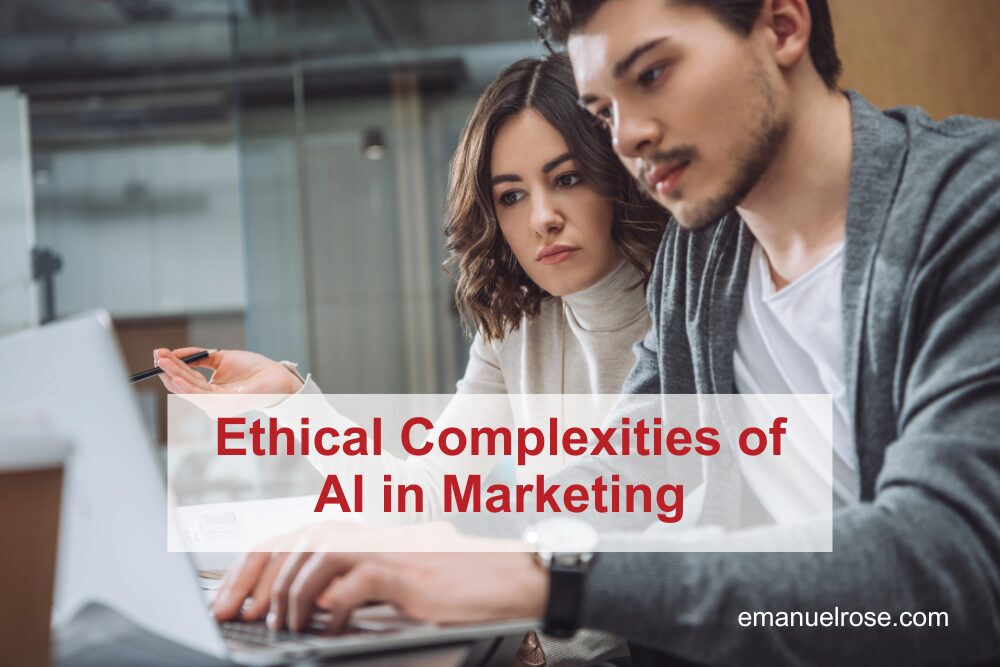As Artificial Intelligence (AI) capabilities continue to develop rapidly, the intersection of AI, software, and ethical considerations in marketing is becoming increasingly critical. Understanding how intelligent systems can reshape marketing strategies while maintaining ethical standards is essential.
The Evolution of AI in Marketing
When we look at the evolution of AI in marketing, we need to go back to the early days of the Internet before browsers became household tools. The promise of enhanced information sharing and data utilization was immediately apparent. By 1996, we were already building e-commerce engines with robust recommendations, which laid the groundwork for today’s AI applications.
One of the major shifts in AI’s application in marketing has been in ad tech. Initially, this involved creating digital twins of users based on their browsing behavior to fine-tune ad placements. Today, we’re optimizing IT operations with AI, simplifying processes without requiring users to have a deep technical background. It’s almost like handing you the superpowers of a seasoned developer without needing to learn the technicalities.
Large Language Models Transforming Marketing Interaction
Large Language Models (LLMs) like GPT are transforming the way we interact with AI. The notion of prompt engineering—crafting specific inputs to yield desired outputs—is crucial yet often overcomplicated. Modern LLMs with integrated sentiment analysis can grasp what you’re looking for and adapt accordingly. The key is to interact naturally, as if speaking to another person, and refining the output with simple feedback.
Several promising AI-driven solutions are spearheading a creative revolution in marketing tools. Visual tools like MidJourney and Flux are noteworthy for creating imagery, while Luma Dreamlabs excels in video animations. Additionally, Suno is a stellar example of AI in music production, perfect for creating unique jingles or background scores for various content types.
AI Complementing Human Creativity

This blend of creativity and technology calls for a deeper evaluation of the role of AI in the future of marketing roles. The concern that AI might replace artists, writers, and designers is a valid one. However, AI should be seen as a powerful collaborator rather than a replacement. Just like a new tool in a craftsman’s toolkit, AI can handle repetitive tasks, allowing human creativity to flourish.
It’s about using AI to overcome the “blank page” problem—generating initial drafts quickly and refining them through human ingenuity.
The Future of AI in Business Operations
The drive to automate repetitive tasks is bringing us closer to a system where business operations are seamlessly interconnected, enhancing efficiency and precision. Imagine a scenario where you’re managing a customer support system with integrated tools for customer retention, marketing, and product recommendations—all accessible via a simple chat interface. This integration eliminates the need to jump between different systems, as the AI handles the complex backend work.
Yet, as we continue to advance, the stability of these AI systems becomes a concern. The fragility of software underpins many of today’s systems, as evidenced by recent outages caused by minor errors in widely used components. The future of AI in marketing—and broader applications—depends on building more resilient and reliable systems. Understanding the implications of this interconnected web and developing solutions to reinforce it against failures is essential.
Empowering Through AI: The Big Picture
Professionals with ADHD, like myself, often have unique strategies to harness their potential. Hyperfocus, for instance, can be a superpower, allowing for intense and productive bursts of activity. Acknowledging these strengths and developing self-management techniques are invaluable. Whether it’s creating art, writing books, or building a brand, the goal is to integrate AI into these processes to amplify our capabilities.

On the software development front, we’re moving towards AI-driven tools that don’t just assist but fundamentally transform workflows. For example, an AI that comprehends and automates the entire software development lifecycle offers a glimpse into the potential for even more sophisticated, context-aware tools.

Looking ahead, the integration of AI in areas like medical transcription and financial services is poised to grow significantly. These sectors involve repetitive, error-prone tasks that AI can handle more efficiently, freeing human experts to focus on more meaningful work.
The demand for advanced, intuitive, and integrated AI systems will only rise as we witness a generational transition in the workforce. Younger generations, who are digital natives, will push for faster modernization and higher standards of service and connectivity.
In conclusion, the future of AI in marketing is a tapestry of integrated, intelligent systems that promise to enhance creativity, streamline operations, and uphold ethical standards. However, this future requires careful consideration of the technological and societal impacts to ensure that progress benefits not just businesses but society at large.

